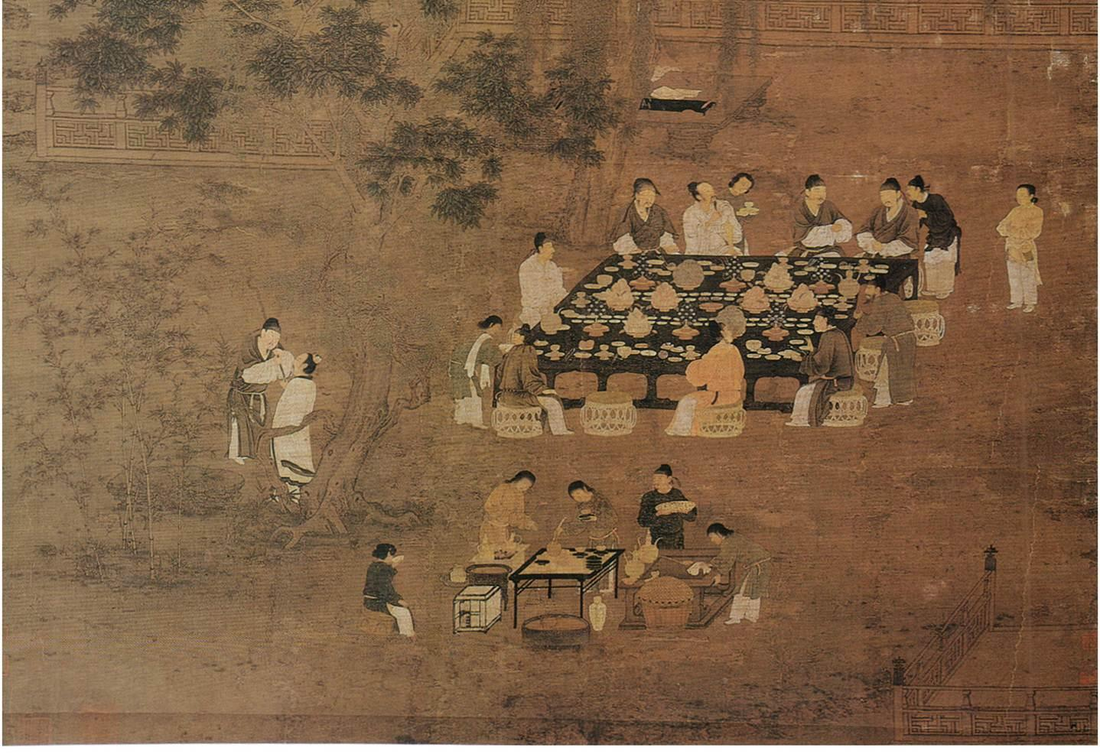
The Beauty of Age in Chinese Tradition
The Beauty of Age in Chinese Tradition
Do you know how beautiful age is in Chinese culture?
Whether you are a newborn, three days after birth, or just growing your very first baby tooth—every stage of life is celebrated, honored, and given meaning. In China, age is not only a number; it is woven into rituals, customs, and blessings that have been passed down for thousands of years. Let’s take a journey through the milestones of life and uncover why each age holds its own special beauty.
Three Days After Birth – The “Full Moon” of Life’s Beginning
In ancient China, the third day after a child’s birth was considered a moment of both danger and blessing. Infant mortality was high, so surviving the first three days was a reason to celebrate. Families would wash the baby in fragrant water infused with herbs, symbolizing purification and protection from evil spirits. Relatives and friends would bring gifts, offering wishes for health and longevity.
This custom reflects the deep respect for life at its earliest stage—the idea that even the tiniest existence carries profound meaning.
The First Tooth – A Bite into the Future
When a baby grows their first milk tooth, Chinese families celebrate with a ritual called “Zhua Zhou” (抓周), though sometimes performed later at the child’s first birthday. Parents prepare objects such as books, brushes, coins, or seals, and the child is encouraged to “choose” one. Whichever item the child grabs is believed to predict their future talents or destiny—scholarship, wealth, or authority.
Why celebrate teeth? In traditional Chinese thought, teeth symbolize strength and growth. The first tooth means the child has taken their first bite into the world, stepping from fragility toward independence.
One Year Old – The “Zhou Sui” Celebration
The first birthday in Chinese culture is not just about cake and candles. It is a solemn family ritual that marks the child’s survival through the most dangerous year of life. Parents shave a lock of the child’s hair, sometimes saving it as a talisman. Guests bring eggs dyed red—a symbol of luck and renewal. The baby is dressed in bright clothes, often with a tiger-head cap to ward off evil.
Every detail reflects the hope that the child will grow strong, safe, and blessed.
Ten Years Old – Entering Wisdom
At ten, a child is no longer seen as merely young and fragile. Ancient texts often call this age “the opening of wisdom” (开智). In old times, children at this stage would begin formal schooling, reciting Confucian classics and learning to write. Parents and teachers held ceremonies to inspire respect for knowledge and virtue.
Age ten thus represents the beginning of intellectual and moral responsibility—a step toward adulthood.
Twenty Years Old – The Coming-of-Age Ritual
In ancient China, reaching twenty meant true adulthood. Boys would undergo the “Capping Ceremony” (冠礼), where their hair was tied up and capped, symbolizing maturity. Girls would experience the “Hairpin Ceremony” (笄礼), where their hair was styled with a pin, marking their readiness for womanhood and marriage.
These ceremonies were not only about family pride but also about social recognition. At twenty, you were no longer a child—you were entrusted with duty, responsibility, and honor.
Thirty Years Old – Establishing Oneself
The philosopher Confucius famously said: “At thirty, I stood firm” (三十而立). This means that by thirty, a person should have established their career, family, and moral foundation. In Chinese culture, this is the age of independence and stability—the time to root oneself in society.
It reflects the ideal that life is not only about personal ambition, but also about contributing to family and community.
Forty Years Old – Understanding Without Doubt
Confucius also said: “At forty, I had no more doubts” (四十不惑). By this age, one is expected to have gained wisdom, clarity, and stability of mind. In traditional thought, forty is when a person stops being easily swayed by confusion or uncertainty.
This stage of life is seen as a turning point, where true confidence and self-knowledge emerge.
Fifty Years Old – Following the Mandate of Heaven
At fifty, Confucius said: “I knew the will of Heaven” (五十知天命). In Chinese belief, this means recognizing one’s destiny—understanding the larger order of the universe and one’s role within it.
Reaching fifty is therefore not just about aging, but about aligning oneself with wisdom, harmony, and acceptance.
Sixty Years Old – The Beauty of Harmony
Sixty years marks a full cycle of the Chinese zodiac (12 years × 5 elements). Completing one cycle is considered a grand achievement, and the 60th birthday is celebrated with great festivity. Friends and family gather to honor the elder, offering longevity noodles and peach-shaped buns, both symbols of long life.
The 60-year-old is celebrated not only for survival, but also for embodying balance—having lived through a complete cosmic cycle.
Seventy Years Old – Rare Longevity
In the Book of Songs (诗经), one of China’s oldest collections of poetry, it is written: “Rare is it for a man to live to seventy” (人到七十古来稀). Because life expectancy was once short, seventy was seen as a rare blessing.
Thus, the 70th birthday is a deeply respected milestone. Elders at this age are considered treasures of the family and society.
Eighty and Ninety – The Joy of Longevity
Living to eighty or ninety is celebrated with grandeur, often with children and grandchildren gathering from afar. These occasions are marked with banquets, red clothing, and blessings painted on scrolls. Longevity is not just personal fortune—it is seen as a blessing for the entire family line.
One Hundred Years Old – The Ultimate Blessing
Reaching a hundred is considered the pinnacle of longevity. In Chinese culture, such elders are called “living Buddhas” or “immortal beings”, symbols of harmony between heaven and earth. Communities often honor centenarians publicly, and families celebrate with fireworks, music, and feasts.
A hundred years of life is not just about the passage of time—it is a living history, a walking treasure of wisdom and memory.
The Beauty of Age
From three days after birth to one hundred years of life, every stage is honored in Chinese tradition. Age is not feared but celebrated, each milestone holding its own rituals, meanings, and blessings.
In this way, age becomes poetry.
It tells us: every moment of life—fragile, vigorous, wise, or fading—is worthy of reverence.
✨ In Chinese culture, growing old is not a decline but an ascent. Each step forward is a new peak, a new beauty.
